There has been speculation that the Earth’s geomagnetic fields may be about to reverse, with substantial implications, but according to a new study, this will not happened soon.
A study by an international team of researchers, including the University of Liverpool, of the most recent near-reversals of the Earth’s magnetic field, has found it is unlikely that such an event will take place anytime soon.
Above, an artist’s rendering (not to scale) of a cross-section of the magnetosphere, with the solar wind on the left in yellow and magnetic field lines emanating from the Earth in blue, and the probes that study it. Illustration: Emmanuel Masongsong/UCLA EPSS/NASA
The speculation that the Earth’s magnetic fields may be about to reverse, was due to the weakening of it over at least the last two hundred years, combined with the expansion of an identified weak area in the Earth’s magnetic field called the South Atlantic Anomaly, which stretches from Chile to Zimbabwe.
In a paper published in the Proceedings of the National Academy of Sciences, a team of international researchers model observations of the geomagnetic field of the two most recent geomagnetic excursion events, the Laschamp, approximately 41,000 years ago, and Mono Lake, around 34,000 years ago, where the field came close to reversing but recovered its original structure.
Richard Holme, Professor of Geomagnetism at the University of Liverpool, said:
“There has been speculation that we are about to experience a magnetic polar reversal or excursion. However, by studying the two most recent excursion events, we show that neither bear resemblance to current changes in the geomagnetic field and therefore it is probably unlikely that such an event is about to happen.
Our research suggests instead that the current weakened field will recover without such an extreme event, and therefore is unlikely to reverse.”
Intensity at Earth’s surface (left) and radial field (Br) at the CMB (right). Top: mid-point of the Laschamp excursion; bottom: mid-point of the Mono Lake excursion.
source University of Liverpool

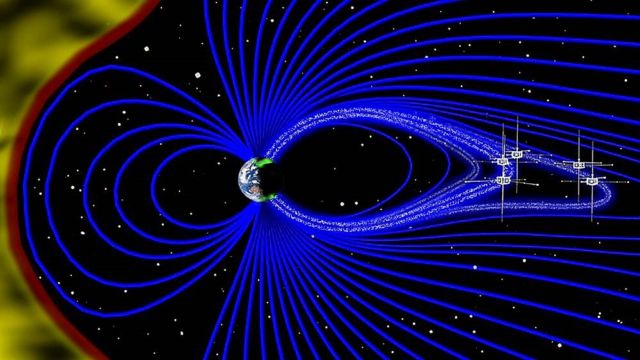
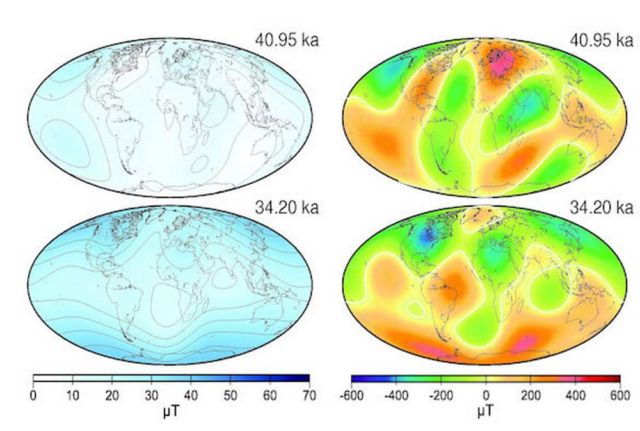
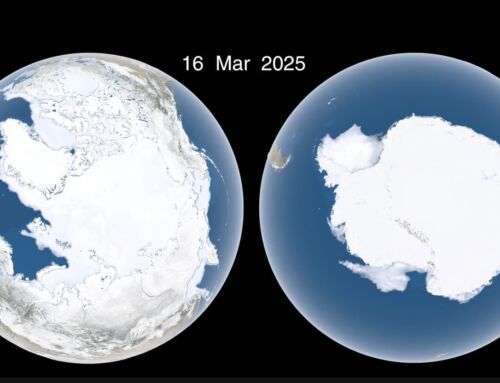
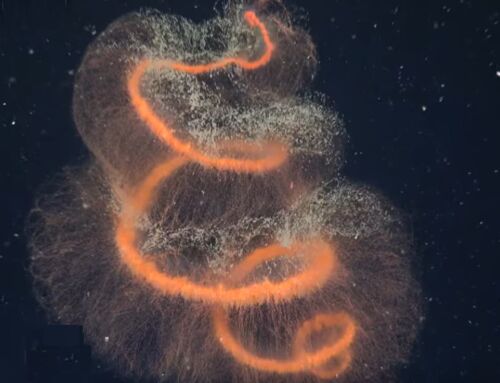
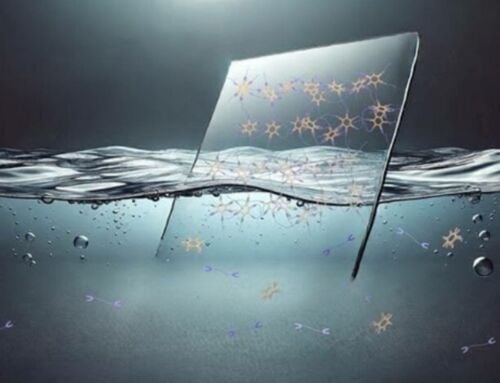
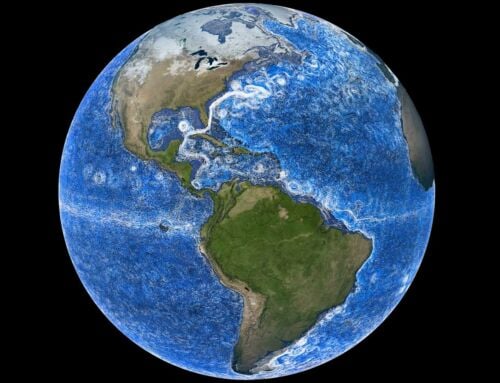
Leave A Comment